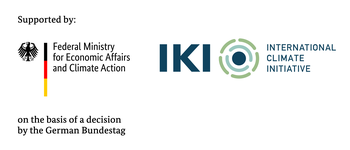COPA primarily supports countries from the Global South eligible for Official Development Assistance in creating effective greenhouse gas mitigation through ozone depleting substances (ODS) and hydrofluorocarbon (HFC) banks management. Partner countries receive access to technical and financial support to establish and further develop a regulatory framework and infrastructure to effectively address the global ODS and HFC banks problem. Countries are welcome to become members of the alliance and benefit from knowledge exchange and an international network of actors willing to jointly work on the sustainable management of ODS and HFCs. In the initial phase, COPA cooperates with China (Ministry of Ecology and Environment of the People’s Republic of China - Foreign Environmental Cooperation Office), Ghana (Ministry of Environment Science Technology and Innovation - Environmental Protection Agency), Mexico (Secretariat of Environment and Natural Resources of Mexico), Tunisia (Ministry of Environment of Tunisia) and Ecuador (Ministry of Production, Foreign Trade, Investment and Fisheries). COPA is working with the five countries to define country-specific commitments, develop project concepts and implement first pilot actions. The results and expertise can then be transferred and multiplied to other countries. COPA focuses on mitigation actions in metropolitan regions as ODS and HFC waste stocks mostly accumulate in densely populated areas.COPA PARTNER & MEMBER COUNTRIES
COPA COUNTRIES
Dominican Republic With the ratification by the Dominican Republic of the Kigali amendment on April 14, 2021, it is necessary to implement a plan for the management of banks of discarded or disused gases and refrigeration and air conditioning equipment regulated by the Montreal Protocol. The Dominican Republic has the challenges of carrying out: Progress for the management of ODS/HFC banks: For more information: https://ambiente.gob.do UNDP is willing to support the partners to strengthen their systems for the reduction of ODS and HFCs banks emissions.
Please select a country:
Member
Activities
